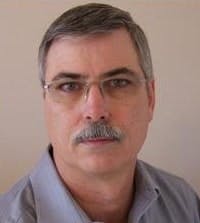A road map for reliability professionals
Joe Park, CRE and CMRP, is global reliability leader at aluminum rolling company Novelis. He has worked in the aluminum industry since 1988 and is a Six Sigma master black belt. On June 9, he'll present "Maintenance Psychology 101" at the Mainstream Conference in Westminster, CO.
PS: You've been in this field long enough to see what the term reliability means to different teams. Could you talk more about your sense of how that definition has changed?
JP: When we first started (Novelis' centralized reliability program), we started with a blank slate. We talked to people across the organization and we played a word game; we said, "When I say reliability, tell me the first word that comes to your mind." And generally they said maintenance, followed closely by cost. So we knew at that point that we had a lot of work to do.
We actually have a motto now; we have T-shirts that with the phrase "Reliability is not just maintenance." It is very much a multifactor equation, and the approach that we've taken in Novelis is we have 15 different elements of reliability, including predictive/precision maintenance, preventive maintenance, work management, procurement, root-cause/failure analysis, operator care, document control...on and on.
We really view it very much as a chain, and where the weak link breaks is where the chain gives way. We've spent a lot of time with operations; we spend a lot of time with procurement doing workshops with them, trying to educate them about their role in reliability. We've engaged a big cross-functional group.
PS: A lot of our readers get the feeling that they're being asked to become reliability engineers when without a complete understanding of what that might mean, wondering, "Is this maintenance by any other name, or is it something more proactive?" In your opinion, does it focus on anything in particular, like uptime or cost benefits?
JP: Again, it's kind of a cross-functional thing. One of the very first things we did was create an 8-week maintenance reliability course to address that very question, "What does it mean to be a reliability engineer?" And it's internally developed and we are now in June kicking off our fifth wave of that course. At this point in time, we've educated more than 100 people across the globe in what does it mean to be a reliability engineer, and we've created that position in all of our plants.
The concept was to build the army. You can't fix things sitting in a corporate office. The decisions and actions take place on the shop floor. Most of our focus has been on providing that education along with best practices and procedures and processes that are implemented at the shop floors by the reliability engineers.
PS: Where do young professionals go to find a mentor and guidance? If someone came to you and said, "How can I do what you do?" what would you tell them to do?
JP: My advice to young people first of all if you're in a manufacturing environment is get close to the product. You can't start at the corporate level. Spend a lot of time on the shop floor, and find the maintenance guy who has been there for 30 years, and listen. Keep your mouth shut, and listen. Listen to the maintenance guys, and really embed yourself in the processes and get close to the product. I don't think there's a better path.
I've come to the realization recently that organizational structuring is as fundamental to good reliability as having the right processes and the right tools. And that's a place I've put a lot of focus in our plants – getting the right people in the right jobs and getting the right designations. Organizational structuring I think has been a big miss for a lot of places in regard to what they're trying to achieve.

